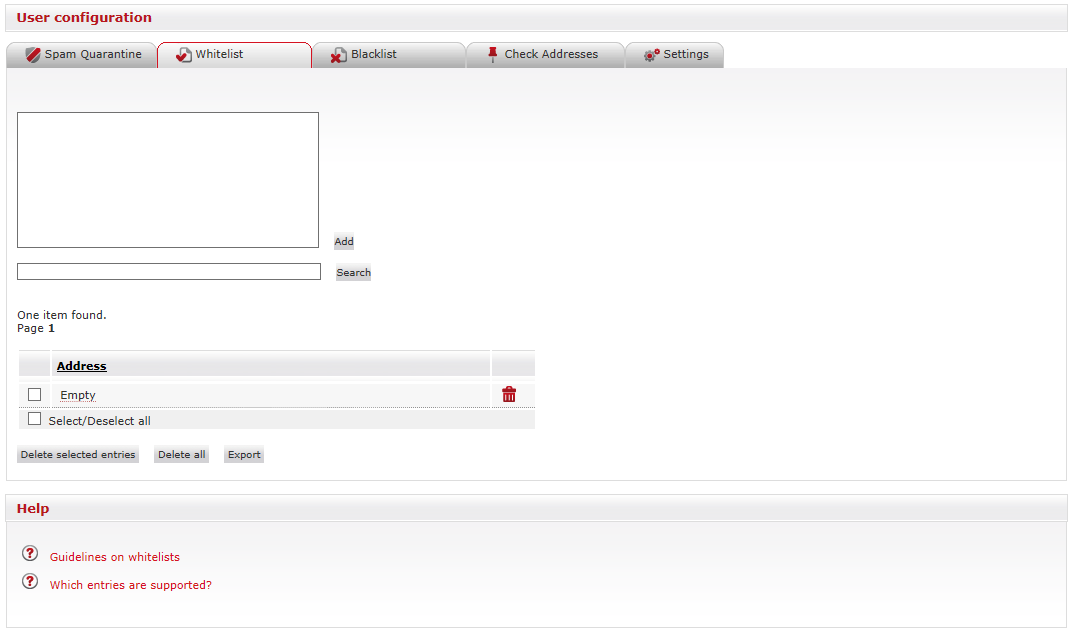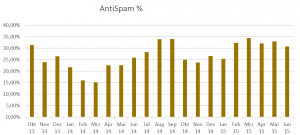The whitelisting of email addresses is not meant to be used for the recipient’s own email address – and for good reason.
The aim and purpose of the exception list is to allow the delivery of messages that contain unconventional formulations, which cause them to regularly get stuck in spam filters even though the recipient would specifically like to read them. Employees at some of Retarus’ E-Mail Security customers, however, add their own company’s domain to the list of exceptions in their user configuration. In the erroneous belief, for instance, that they could otherwise not send news articles to the company email address using their own email address as the sender.
This can actually backfire quite badly. If a message pretends to be from a sender at the company in question and also happens to contain a malicious attachment which the virus scanner is not yet able to recognize as a virus and delete, then the message will be delivered straight to the user’s inbox. Without the user having whitelisted the sender, there would be an excellent chance that such emails would be sent to quarantine by the spam filter, and that the malware would be detected when it is later downloaded.
tl;dr You don’t need a whitelist to communicate with yourself via email 😉
You can find out more about Retarus E-Mail Security here or directly from your local Retarus contact person.
P.S: Have you already seen our Infographic: Six facts about email?





